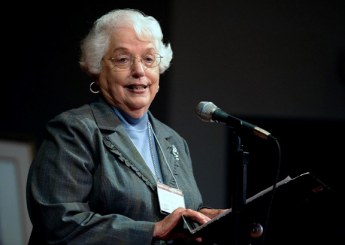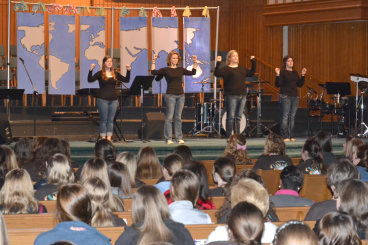There’s a saying that if you want to hear God laugh, tell Him your plans.
The folks at Oakmont Baptist Church, Greenville, North Carolina, have experienced that principle firsthand.
It all started when the congregation purchased a 112-unit apartment complex next door. Being hemmed in on their own seven-acre parcel, Oakmont Baptist’s leaders considered possible demolition, Pastor Greg Rogers said.
“We went into this thinking we are landlocked and here is an opportunity to get out of that,” Rogers said. “I’m sure God laughed at us several times.”
Evidence of that laughter has come through the years since the 2007 purchase. In that time the congregation has become increasingly aware of a calling to do much more with the 10-acre complex than they could have ever imagined, Rogers said.
“The purchase galvanized the creation of the Oakmont Community Center and out of that a multiplicity of ministries,” he said.
Congregational coach
Rogers said in its work with congregational coach Eddie Hammett, Oakmont Baptist initially discerned an affordable housing ministry for the working poor, ministry to college students and senior adult ministries.
But from that members of Oakmont Baptist have learned how to contextualize their ministries and they have relied on both lay and clergy leadership, Hammett said.
“They model how to partner with the community, with the different groups, the university and the medical people,” he said.
So it’s no wonder that multiple ministry forms have sprung from Oakmont Baptist’s apartment complex purchase.
Hammett said a lot of churches think it’s just big churches with deep pockets that can do these things. They are wrong.
“Any church of any demographic can do it,” he said. “They just have to be open and ready.”
Rogers said later the church began sensing that something even bigger was afoot, something that opened the way for more ambitious outreach.
“Our eyes have been opened to the needs of the neighborhood,” he said.
Ministry in surrounding areas
That awareness came initially from the affordable housing project. That project introduced the church to the children and families who live in the apartments and surrounding area.
From those relationships the needs for other ministries were discerned. Those include:
- An outreach to unsheltered homeless people providing them showers, haircuts, health screenings, a meal and Bible study.
- A medical clinic that operates two days a month. Health care services are provided to the uninsured and under-insured. It also includes medications available at cost plus $1.
- English as a Second Language courses.
- An outreach to women struggling educationally and vocationally.
These ministries resulted from lay and clergy leaders working in teams instead of through committees to make decisions and take action when needs were seen, Rogers said.
“What shifted is we are more incarnational now,” he said. “It’s moved beyond missional to incarnational, to being the hands and feet” of Christ.
And it’s a willingness to form relationships with the working poor, the homeless and the sick and suffering, he said.
(BNG)





Share with others: